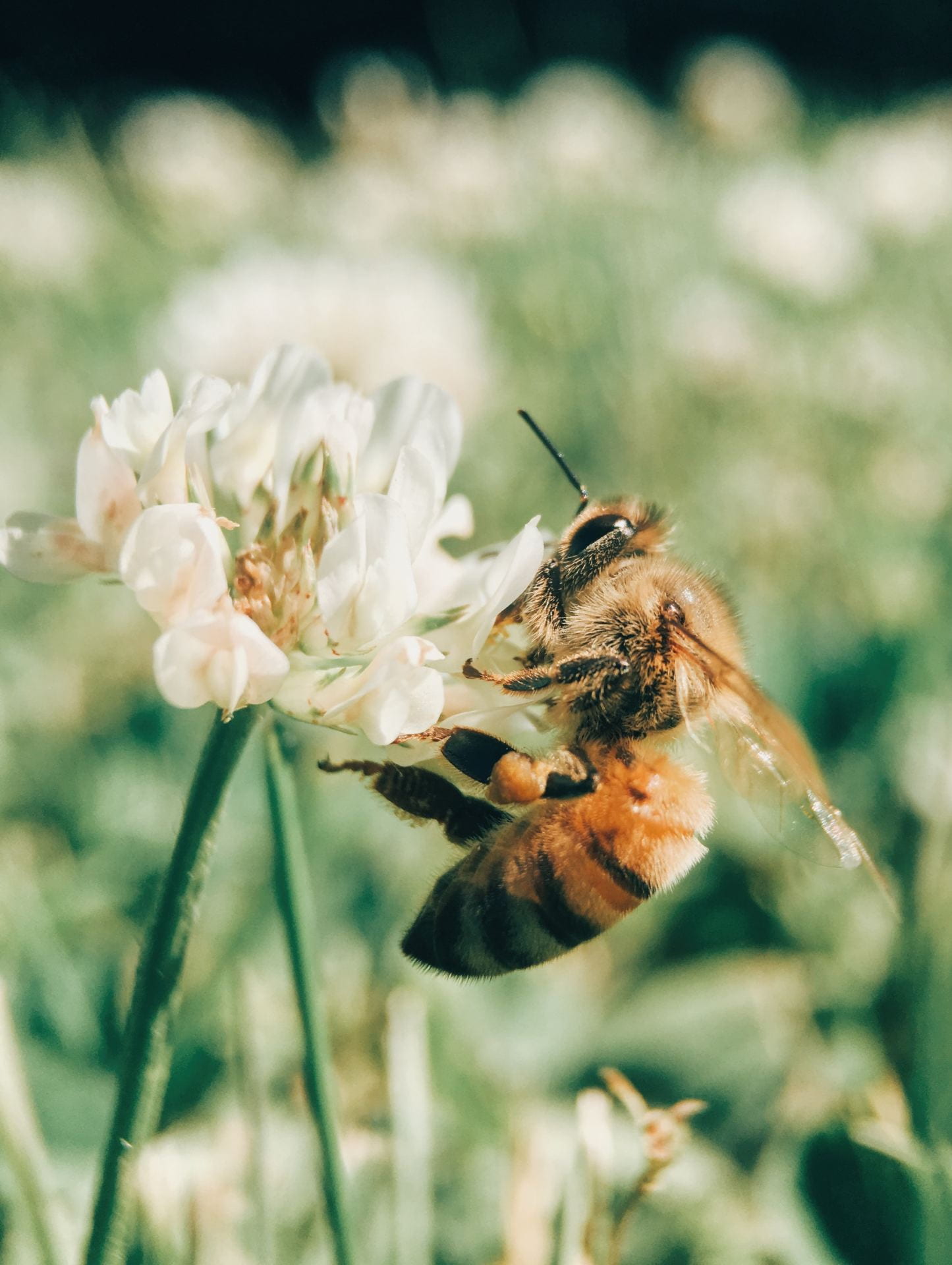Hi! I'm Tash, a third year English student and (very very very) amateur photographer, who is liable to accidentally dye my light clothes (or friends, or seats, or walls) blue with my hair whenever it rains :)

World Bee Day! – Celebrating in Lincoln
May 20, 2021,
read.
This article is more than 3 years old
This year on the 20th of May is World Bee Day! Since 2017 this day in May each year has been all about celebrating the role of these sweet pollinators in ecosystems all around the world. This year, us at Student Life wanted to talk a little bit about how the University of Lincoln works with bees, and how you can get involved yourself!

Established in July 2019 on the top floor of the Alfred Tennyson building, the University hosts an urban bee garden. This garden is then cared for by a volunteer group of staff and students all through the year (which you can apply to be a part of by emailing enviroment@lincoln.ac.uk). Although these honey bees were brought to campus originally for research purposes, as pollinators are some of the best and sweetest gardeners we could hope for on campus, plus their garden is a gorgeous spot.
If you want to have a look at the University bee garden follow this link: https://www.instagram.com/p/B0imM4UBA_L/
A way to get involved yourself could be starting a little bee garden for yourself. Whether you only have pots or a window box or a full garden to work with, you can find space to pop in some of the flowers and plants that bees love! Some favourites for bees include English Lavender, Dahlias, Bluebells and Daisies. Or you can buy a bee-specific seed and bulb pack to do some of the work for you! Bee-Bombs are one of the most well-known examples, these little seed pods are designed for throwing or spreading all over areas you want to plant in, you can even get some Wildflower pack to take out to local green spaces.
These additions of greenery to your space helps create B-Lines; linking planted areas around in urban spaces that act as sort of insect passport links. The more flowers and plants available to bee the more they can pollinate, and the further they can travel without tiring!
Finally, there are a handful of organisations dedicated to protecting bees in the contexts of all the new challenges facing hives in recent years. These include charities like the Bumblebee Conservation Trust and The National Trust. These organisations offer even more specialist advice when it comes to celebrating and helping your local bees, from buying ethical and local honey to making bee houses at home, as well as opportunities to donate to the cause or pick up some merchandise to draw more eyes to the cause in time for this World Bee Day.




